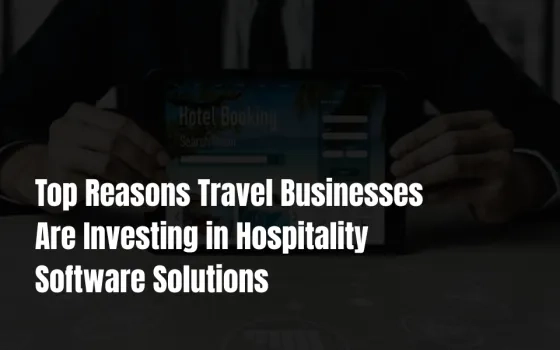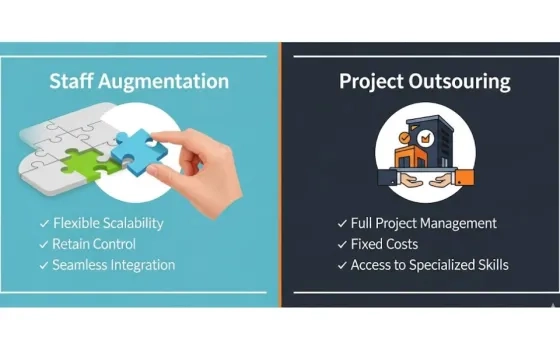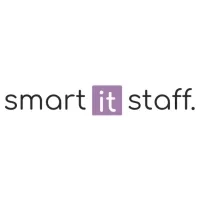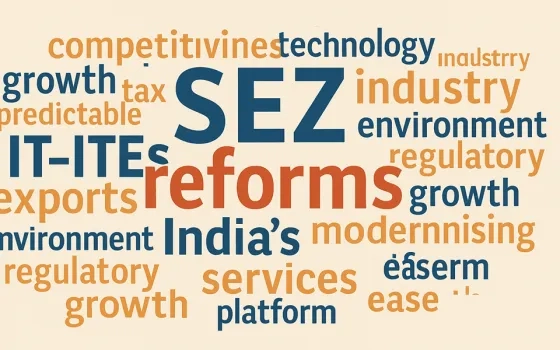The travel industry has undergone a profound transformation over the past decade, primarily driven by technological advancements. From personalized booking experiences to AI-driven recommendations, digital solutions now define how travelers interact with businesses. At the core of this evolution lies hospitality software, a powerful enabler that is reshaping the way hotels, resorts, tour operators, and travel agencies deliver value.
In 2026 and beyond, hospitality software solutions will no longer be a luxury but a necessity for organizations striving to remain competitive in a rapidly shifting global marketplace. Travel businesses are increasingly investing in advanced platforms to streamline operations, enhance guest satisfaction, and unlock new revenue models.
The Rising Demand for Digital Transformation in Travel
Digital-first expectations have become the new normal for modern travelers. Consumers demand seamless booking systems, transparent pricing, flexible cancellation policies, and personalized recommendations at every stage of their journey. Travel businesses that continue to rely on manual processes or outdated systems risk losing relevance.
Hospitality software solutions bridge this gap by offering fully automated workflows, real-time analytics, and integrated communication channels. By centralizing information across customer service, reservations, and operations, these systems empower organizations to deliver consistent and frictionless experiences.
Operational Efficiency Through Automation
One of the most compelling reasons travel businesses are adopting hospitality software is the ability to streamline operations. Traditional manual processes in booking, billing, or resource allocation consume time and leave room for costly errors.
Hospitality software enables automation at scale. From dynamic pricing engines that adjust room rates in real-time to AI-driven chatbots that manage customer inquiries, automation ensures both efficiency and accuracy. This transformation enables staff to shift their focus from repetitive tasks to guest engagement, ultimately enhancing service delivery.
Elevating Guest Experiences
Guest experience has become the most significant differentiator in the competitive travel landscape. Hospitality software provides tools to personalize interactions, track preferences, and deliver services tailored to individual needs.
For instance, a frequent traveler booking through a hotel chain can be automatically offered room upgrades or loyalty rewards. At the same time, a family vacation package can include customized add-ons like guided tours or child-friendly amenities. By anticipating needs and personalizing offerings, travel businesses strengthen loyalty and generate repeat bookings.
Real-Time Data and Analytics
Data has become the foundation of decision-making in the modern travel industry. Hospitality software solutions provide businesses with advanced analytics tools that convert raw data into actionable insights.
Travel companies can monitor occupancy rates, forecast demand, and analyze spending patterns with remarkable precision. This data-driven approach empowers organizations to optimize pricing strategies, improve marketing campaigns, and identify new growth opportunities. In 2026, real-time data will play an even greater role in sustaining competitive advantage.
Integration Across Ecosystems
The travel industry thrives on partnerships and interconnectivity. Airlines, hotels, car rental companies, and tour operators must work together seamlessly to deliver seamless end-to-end travel experiences. Hospitality software serves as the integration hub, uniting these diverse systems into a single, cohesive ecosystem.
Through APIs and standardized protocols, travel businesses can synchronize operations across different platforms, ensuring a cohesive journey for customers. A traveler booking a flight, hotel, and local excursion through one platform experiences the power of integrated hospitality software working behind the scenes.
Security and Compliance at the Forefront
As the travel industry continues to digitize, the importance of security cannot be overstated. Customer trust depends heavily on the safe handling of personal and financial data. Hospitality software is designed with robust security features, including encryption, secure payment gateways, and compliance with global standards like GDPR and PCI DSS.
By investing in solutions that prioritize security, travel businesses safeguard their reputation and build long-term trust with customers. This emphasis on compliance is particularly crucial for multinational organizations operating in diverse regulatory environments.
Scalability for Global Expansion
Travel businesses often operate across multiple geographies, catering to customers from different cultural and economic backgrounds. Hospitality software provides the scalability required to expand seamlessly into new markets.
Cloud-based platforms allow enterprises to onboard new properties, integrate additional services, and manage diverse customer bases without disrupting core operations. Whether scaling from regional operations to global reach or diversifying offerings, hospitality software ensures that a strong digital backbone supports growth.
Enhancing Employee Productivity
Hospitality software not only benefits customers but also empowers employees. Automating repetitive administrative tasks frees staff to focus on higher-value interactions. Front-desk personnel can dedicate more time to addressing guest needs, while back-office teams gain visibility into financial performance and resource allocation.
Furthermore, mobile-friendly interfaces enable employees to access data and manage tasks on the go, improving responsiveness and collaboration across departments. In a people-driven industry like travel, boosting employee efficiency directly translates to better guest satisfaction.
Revenue Optimization Strategies
Hospitality software offers advanced tools for revenue management, a critical component of success in the travel industry. Dynamic pricing models enable businesses to adjust rates in response to demand, seasonality, and market conditions.
For example, during peak tourist seasons, hotels can maximize revenue by offering premium pricing while simultaneously creating targeted promotions during off-peak periods to maintain occupancy levels. By leveraging predictive analytics, travel businesses can optimize profitability without compromising customer satisfaction.
The Rise of Sustainable Travel
Sustainability has become a global priority, and travelers are increasingly seeking eco-conscious options. Hospitality software helps businesses meet these expectations by tracking resource usage, reducing waste, and enabling transparent sustainability reporting.
From monitoring energy consumption to supporting paperless check-ins, these solutions align business practices with the growing demand for environmentally responsible travel. Companies that embrace sustainability not only attract eco-conscious travelers but also strengthen their brand identity in a competitive market.
Innovation Through Artificial Intelligence
Artificial Intelligence is revolutionizing the travel sector, and hospitality software is at the forefront of this transformation. AI-driven solutions enable personalized marketing campaigns, predictive demand forecasting, and virtual concierge services.
Travelers can interact with intelligent chatbots for instant assistance or receive tailored recommendations based on historical preferences. AI also powers fraud detection systems, protecting both customers and businesses. As AI continues to mature, its integration into hospitality software will create more innovative, more adaptive travel ecosystems.
Mobile-First Experiences
With smartphones becoming the primary touchpoint for travel planning and booking, hospitality software is increasingly emphasizing mobile-first capabilities. Customers expect to manage their entire journey—from researching destinations to making payments—through user-friendly mobile apps.
By providing intuitive interfaces and seamless integrations, travel businesses can engage customers at every stage of the journey, reinforcing loyalty and convenience. This mobile-centric approach is set to define the future of travel interactions.
Why Hospitality Software is a Strategic Investment
For travel businesses, investing in hospitality software is not merely about technology adoption; it is about future-proofing their operations. These solutions unlock efficiency, scalability, and intelligence while positioning organizations to respond to evolving consumer expectations.
In a world where competition is intense and customer loyalty is fleeting, hospitality software provides the foundation for long-term success. By embedding innovation, security, and personalization into every interaction, businesses elevate their value proposition and build sustainable competitive advantage.
Conclusion
The future of travel lies in seamless digital experiences, and hospitality software stands as the linchpin of this transformation. From operational efficiency and revenue optimization to sustainability and personalization, its impact is far-reaching.
Travel businesses that embrace these solutions will not only meet rising consumer expectations but also lead the industry into a new era of innovation and growth. In 2026 and beyond, hospitality software will no longer be a differentiator—it will be a defining necessity for enterprises seeking to thrive in a digital-first travel ecosystem.



















